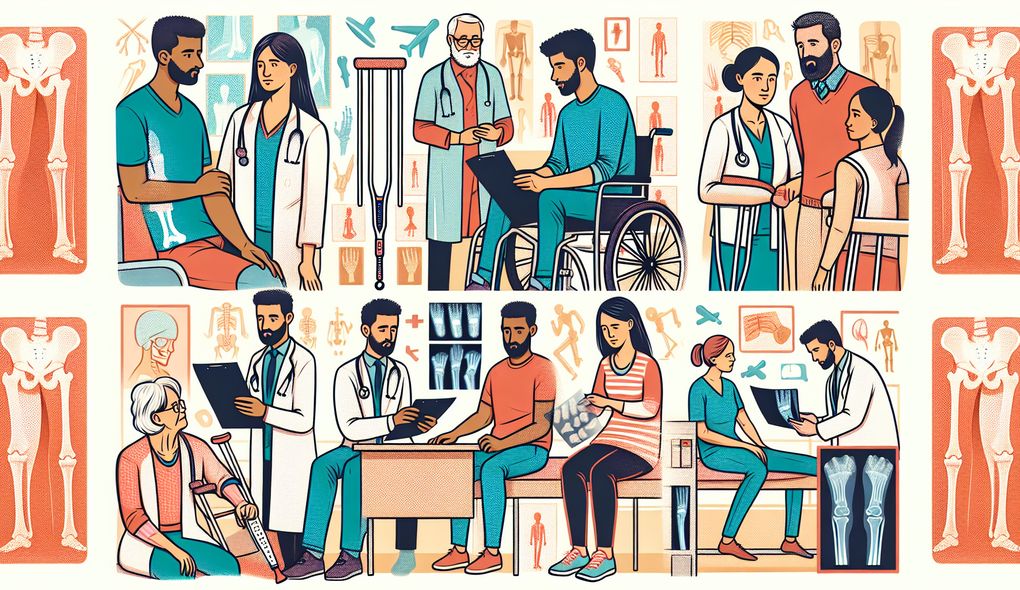How do you prioritize your workload and manage time effectively as an Orthopedic Specialist?
INTERMEDIATE LEVEL

Sample answer to the question:
As an Orthopedic Specialist, I prioritize my workload by assessing the urgency and severity of each case. I first focus on patients who require immediate attention, such as those with fractures or acute injuries. Next, I address cases that have been waiting longer to ensure timely care. To manage my time effectively, I use a scheduling system that allows me to allocate specific time slots for appointments, surgeries, and administrative tasks. I also delegate non-medical tasks to support staff when appropriate. By staying organized and prioritizing tasks, I am able to provide efficient and effective care to my patients.
Here is a more solid answer:
As an Orthopedic Specialist, I prioritize my workload by assessing the urgency and severity of each case. For example, if a patient comes in with a compound fracture, I immediately prioritize them for surgery and make the necessary arrangements. I then focus on cases that have been waiting longer, ensuring that patients do not experience unnecessary delays in their treatment. To effectively manage my time, I utilize a digital calendar that allows me to schedule appointments, surgeries, and administrative tasks. This helps me stay organized and ensures that I allocate the right amount of time for each task. Additionally, I delegate non-medical tasks, such as paperwork and phone calls, to my support staff, allowing me to focus on providing quality patient care. By implementing these strategies, I am able to efficiently manage my workload and provide timely and comprehensive care to my patients.
Why is this a more solid answer?
The solid answer expands on the basic answer by providing specific examples and details. The candidate explains how they prioritize cases based on urgency and severity, and provides an example of a compound fracture. They also mention their use of a digital calendar and delegation of non-medical tasks. These additional details make the answer more comprehensive and demonstrate the candidate's ability to effectively prioritize and manage their time.
An example of a exceptional answer:
As an Orthopedic Specialist, prioritizing my workload and managing time effectively is crucial to ensure optimal patient care. I have developed a systematic approach to prioritize cases based on the urgency and severity of each condition. For instance, I triage patients with acute fractures or injuries, ensuring they receive immediate attention and necessary interventions. I also consider the potential impact on long-term outcomes, prioritizing patients who are more likely to benefit from early intervention. To manage my time efficiently, I utilize a combination of digital tools, including a calendar and task management software. This allows me to visualize my schedule, allocate appropriate time for consultations, surgeries, and administrative tasks, and avoid overbooking. Additionally, I regularly communicate and collaborate with my team, including nurses, physical therapists, and administrative staff, to coordinate patient care effectively and optimize workflow. By effectively prioritizing my workload and managing time, I am able to provide timely, comprehensive, and patient-centered care.
Why is this an exceptional answer?
The exceptional answer takes the solid answer to the next level by providing further details on the candidate's systematic approach to prioritize cases. They mention triaging patients with acute fractures or injuries, as well as considering the potential impact on long-term outcomes. The candidate also emphasizes the use of digital tools and collaboration with the healthcare team to enhance efficiency and optimize workflow. These additional details showcase the candidate's advanced skills in workload prioritization and time management, aligning well with the requirements of the job.
How to prepare for this question:
- Familiarize yourself with common orthopedic conditions and their urgency levels to develop a systematic approach in prioritizing cases.
- Learn how to use digital tools, such as calendars and task management software, to effectively manage your schedule and allocate time for different tasks.
- Practice delegation and collaboration skills by working with support staff and healthcare professionals to optimize workflow.
- Stay updated with the latest advancements in orthopedic medicine and evidence-based practices to enhance patient care outcomes.
- Reflect on past experiences where you successfully managed a heavy workload and discuss how you applied prioritization and time management strategies.
What are interviewers evaluating with this question?
- Prioritization
- Time management

